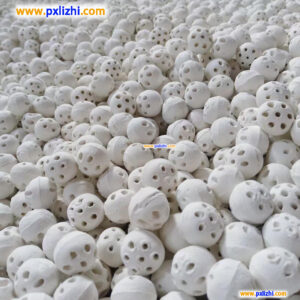The Ultimate Guide to Inert Ceramic Balls: Uses, Benefits, and Applications

The Ultimate Guide to Inert Ceramic Balls: Uses, Benefits, and Applications
Inert ceramic balls are high-performance industrial materials widely used for their exceptional durability and chemical resistance. These versatile spheres play a crucial role in numerous industrial processes where consistent performance and reliability are paramount.
Primary Functions and Industrial Applications
These specialized ceramic balls serve as excellent catalyst bed supports in chemical reactors, preventing catalyst loss while ensuring optimal fluid distribution. Their unique properties make them ideal for petroleum refining, petrochemical processing, and gas treatment facilities where they maintain structural integrity under extreme temperatures and pressures.
Key Advantages in Industrial Settings
The remarkable thermal stability of inert ceramic balls allows them to withstand temperatures exceeding 1600°C without degradation. Their non-reactive nature ensures they don’t contaminate process streams, while their high crushing strength provides long-term operational reliability. Industries benefit from reduced maintenance costs and extended equipment lifespan when implementing these robust solutions.
Common Applications Across Industries
From supporting catalysts in ammonia plants to serving as tower packing in distillation columns, inert ceramic balls demonstrate remarkable versatility. The oil and gas sector particularly values these components for their ability to maintain performance in harsh environments, including hydrotreating units and reforming processes.
Selecting the Right Ceramic Balls
When choosing inert ceramic balls, consider factors like alumina content, size distribution, and bulk density. Higher alumina content typically correlates with better chemical resistance and mechanical strength, making it crucial for specific industrial requirements.
Frequently Asked Questions
Temperature Resistance Specifications
These ceramic spheres typically withstand continuous operating temperatures up to 1650°C, with certain formulations capable of handling even higher thermal loads depending on their chemical composition and manufacturing process.
Chemical Compatibility Considerations
Inert ceramic balls demonstrate excellent resistance to most acids, alkalis, and organic solvents, though specific chemical compatibility should be verified for each application environment.
Optimizing Your Industrial Processes
Proper implementation of inert ceramic ball technology can significantly enhance your operational efficiency. These components ensure uniform flow distribution, prevent channeling, and protect valuable catalysts from mechanical damage.
Maintenance and Longevity Factors
With proper installation and operating conditions, high-quality inert ceramic balls can provide service life exceeding five years in most industrial applications, making them a cost-effective solution for long-term operations.
Ready to enhance your industrial processes? Discover how our specialized inert ceramic balls can optimize your operations while reducing maintenance costs. Contact our technical experts today for personalized recommendations tailored to your specific application requirements.